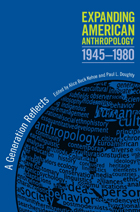
The vision of a garden shared peacefully by humans and animals is a familiar, but elusive, landscape trope. Whether threatened by habitat destruction or climate change, displaced by urbanization or invasive species, poisoned by industrial toxins, or hunted to extinction, many wild animals have failed to thrive in the company of people. There is growing scientific consensus that we are in the midst of the sixth great extinction in earth history—and the first caused by human activities.
What agency can landscape architects and garden designers have in conserving or restoring wildlife diversity? Designing Wildlife Habitats gathers essays by designers, scientists, and historians to explore how they might better collaborate to promote zoological biodiversity and how scientific ambitions might be expressed in culturally significant and historically informed design. Established conservation practices within ecology have begun to shape landscape architecture, and current initiatives in ecosystem services, restoration ecology, and designer-generated ecological experiments provide an enlarged role for landscape architects in the creation of productive habitats. Design has become increasingly instrumental to both the appearance and the ecological function of landscapes.


Indigenous knowledge has become a catchphrase in global struggles for environmental justice. Yet indigenous knowledges are often viewed, incorrectly, as pure and primordial cultural artifacts. This collection draws from African and North American cases to argue that the forms of knowledge identified as “indigenous” resulted from strategies to control environmental resources during and after colonial encounters.
At times indigenous knowledges represented a “middle ground” of intellectual exchanges between colonizers and colonized; elsewhere, indigenous knowledges were defined through conflict and struggle. The authors demonstrate how people claimed that their hybrid forms of knowledge were communal, religious, and traditional, as opposed to individualist, secular, and scientific, which they associated with European colonialism.
Indigenous Knowledge and the Environment offers comparative and transnational insights that disturb romantic views of unchanging indigenous knowledges in harmony with the environment. The result is a book that informs and complicates how indigenous knowledges can and should relate to environmental policy-making.
Contributors: David Bernstein, Derick Fay, Andrew H. Fisher, Karen Flint, David M. Gordon, Paul Kelton, Shepard Krech III, Joshua Reid, Parker Shipton, Lance van Sittert, Jacob Tropp, James L. A. Webb, Jr., Marsha Weisiger
READERS
Browse our collection.
PUBLISHERS
See BiblioVault's publisher services.
STUDENT SERVICES
Files for college accessibility offices.
UChicago Accessibility Resources
home | accessibility | search | about | contact us
BiblioVault ® 2001 - 2024
The University of Chicago Press









